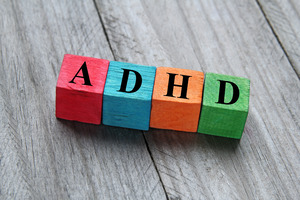
At a glance, ADHD and sleep apnea might seem like completely separate issues. However, there can be more overlap between them than you might think; it’s estimated that up to one-third of patients who have been diagnosed with ADHD are also suffering from sleep-disordered breathing. What’s the connection between these conditions? Your sleep dentist is here with the facts.
How are Sleep Apnea and ADHD Connected?
Many of the symptoms that are associated with ADHD can also be a result of sleep apnea. Said symptoms typically include difficulty concentrating, memory problems, and generally feeling irritable. For this reason, it’s not unheard of for sleep apnea to be misdiagnosed as ADHD, especially in younger patients.
Furthermore, if a person does have both ADHD and sleep apnea, the two conditions can make each other worse. Sleep apnea is characterized by pauses in breathing that force your body to wake up multiple times throughout the night. This results in a lack of quality sleep that can aggravate ADHD symptoms. Meanwhile, people who have ADHD tend to have a harder time falling and staying asleep, which is a major issue when you’re already struggling with a sleep disorder.
What Can You Do If You Have Sleep Apnea and ADHD?
One study found that treating sleep apnea can also potentially help reduce symptoms associated with ADHD. Thus, if you suspect you have sleep apnea, you should take the necessary steps to have it diagnosed as soon as possible. The sooner that you confirm that you’re suffering from a sleep disorder, the sooner you can start exploring potential treatment solutions.
The most well-known treatment for sleep apnea is CPAP therapy, which involves a machine that provides air through a mask to keep your airway open. However, many people are unable to tolerate CPAP therapy, which is why your sleep dentist offers oral appliance therapy as an alternative. Oral appliances slightly reposition your lower jaw and tongue to reduce the risk of your airway becoming blocked.
When it comes to ADHD, treatment often involves medication along with various forms of therapy. Note that the kind of treatment recommended often depends on the age of the patient.
You should always take steps to have sleep apnea and ADHD addressed quickly. Letting them go unchecked for too long can take a serious toll on your quality of life. Reach out to a professional today if you’ve noticed possible symptoms of one or both of these conditions.
About the Author
Dr. Glenn Thompson pursued his degree in dentistry at the Tufts University School of Dental Medicine in Boston. Today, he is focused on helping his patients overcome their sleep apnea symptoms with personalized oral appliance therapy. To schedule a consultation with Dr. Thompson at Downtown Denver Sleep Solutions, visit his website or call (303) 377-5337.